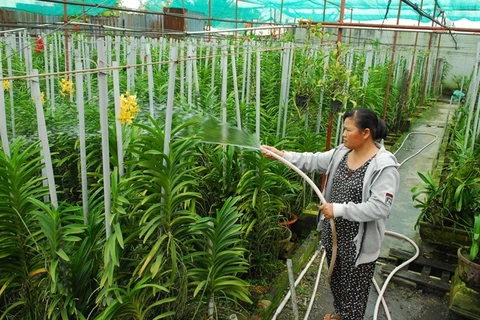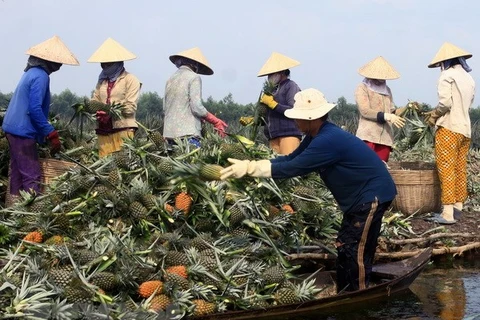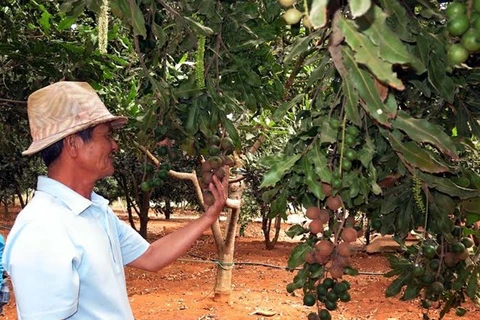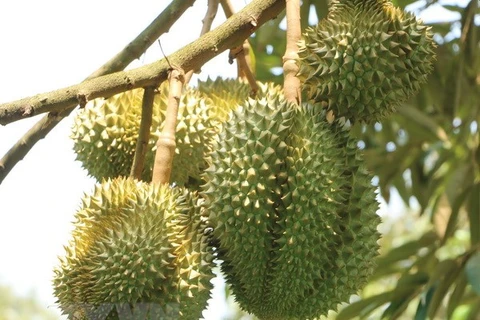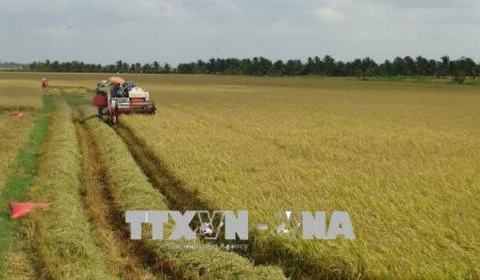 The Central Highlands province of Gia Lai has worked to replace traditional key farm produce like rubber, coffee and pepper with fruit trees, which generate more income (Illustrative photo: VNA)
The Central Highlands province of Gia Lai has worked to replace traditional key farm produce like rubber, coffee and pepper with fruit trees, which generate more income (Illustrative photo: VNA) Gia Lai (VNA) – The Central Highlands province of Gia Lai has worked to replace traditional key farm produce like rubber, coffee and pepper with fruit trees, which generate more income.
The province is home to more than 7,200ha of fruit trees, up nearly 1,200ha against 2016. The area is mainly to grow banana (1,700ha), mango (more than 1,000ha), durian (560ha) and dragon fruit (350ha), among others.
It aims to have 10,000ha under fruit trees by 2020, focusing on fruits with geographical indication tags.
In addition, Gia Lai will promote high-tech agriculture and processing of farm produce, along with clean and renewable energy and tourism, said Chairman of the provincial People’s Committee Vo Ngoc Thanh.
The province will support businesses as well as seek domestic and foreign partners to achieve sustainable economic growth, he added.
Duc Co border district is among localities with the strongest efforts to restructure agricultural production, with more than 350ha of fruit trees at present. Durian, the district’s staple, is grown on 200ha of land along with rubber and coffee gardens. The district’s durian output hits between 8-12 tonnes per hectare annually, raking in high income for growers.
Similarly, KBang district has replaced coffee with fruit trees in more than 500ha of land. Tran Thi Lan, a farmer in the district’s Son Lang commune, earns more than 200 million VND (8,700 USD) in profit a year by growing organic oranges.
Major businesses have also started to invest in Gia Lai’s fruit sector. Notably, Hoang Anh Gia Lai Joint Stock Company planted more than 900ha of fruit trees in the province using a banana variety from South America, Thai durian, avocado and passion fruit.
In 2017, the company shipped nearly 700 tonnes of fruit to China and Thailand, with total export revenue exceeding 430,000 USD.
A project to build one of the nation’s most modern fruit and vegetable processing factories in the province is set to be completed in July 2018. Invested by the Dong Giao Foodstuff Export JSC (DOVECO) to the tune of 300 billion VND, it is expected to yield 40,000 tonnes of products per year and generate jobs for thousands of local labourers.
Once operational, the factory is estimated to rake in 2 trillion VND (87.3 million USD) of revenue, including 80-90 million USD from exports, per year.-VNA
